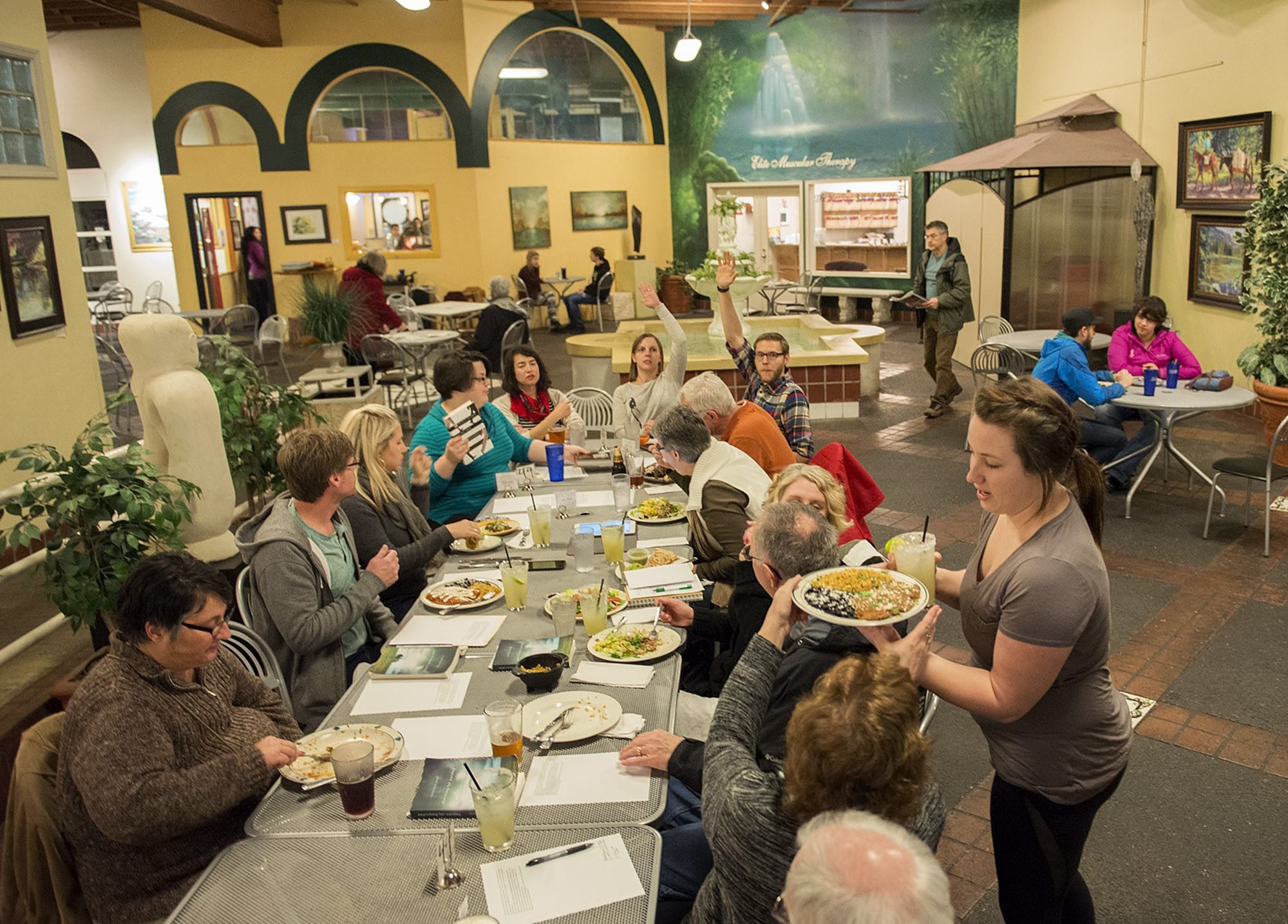Conversations about Christlike love overlap with sounds of scraping silverware and a waitress asking “Who’s number 45?” “Who ordered the burrito?”
Members of First Presbyterian Church in Vancouver gather every other Thursday for “theopub,” a time of informal fellowship and book discussion. It’s not a Bible study group, at least not directly. On a recent Thursday, its members were discussing “Searching for Sunday” by Rachel Held Evans, and her story of leaving the church like many of her millennial peers and returning years later.
“We get to eat, drink beer and talk theology. You can’t beat that,” said Gary Cotton, who’s been going to First Presbyterian for three years.
Theopubs aren’t new. St. Anne’s Episcopal Church has theopubs at Amnesia Brewing in Washougal on the third Thursday of every month. For First Presbyterian Rev. Josh Rowley, it’s a chance to get the church out of its building and into the community — and possibly attract new members.




